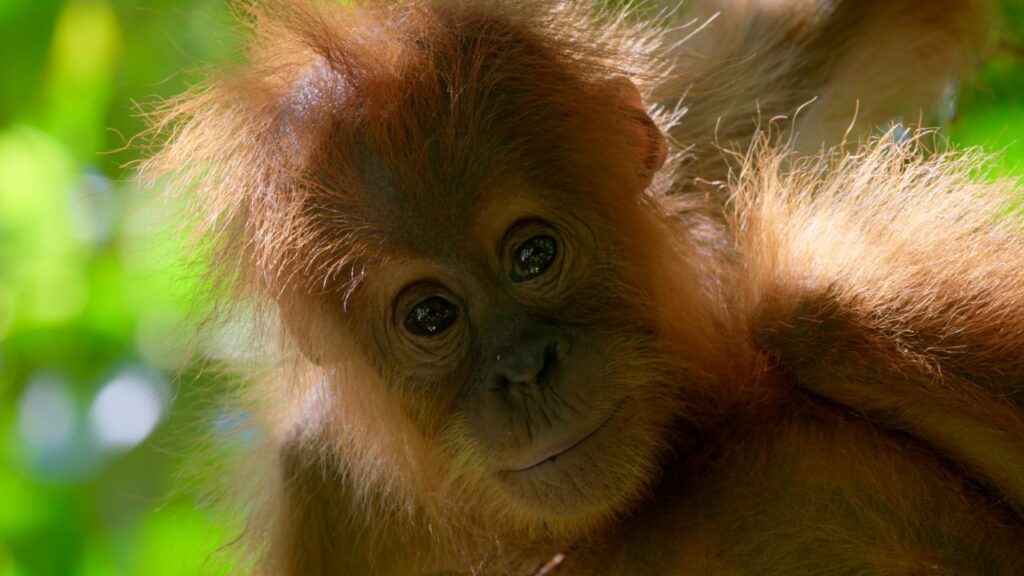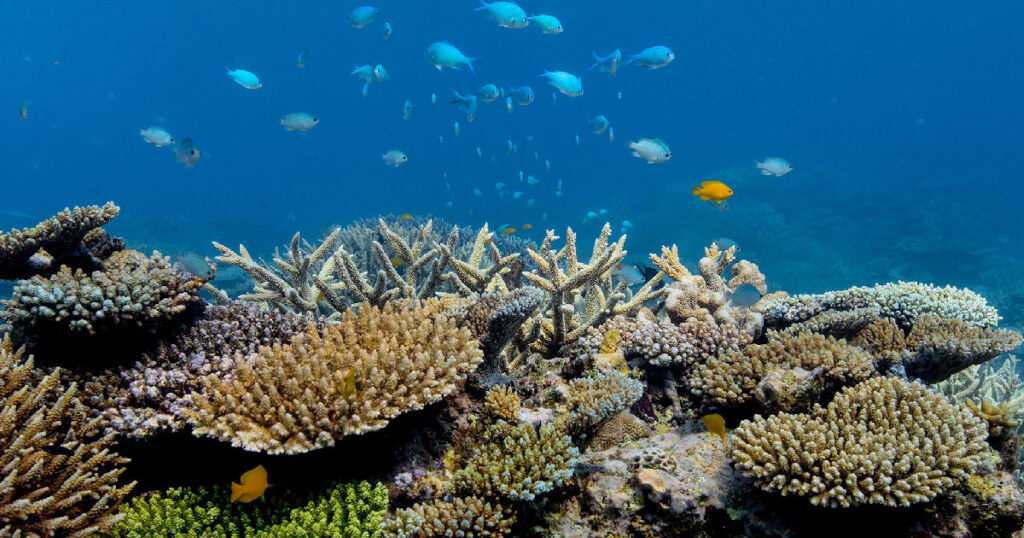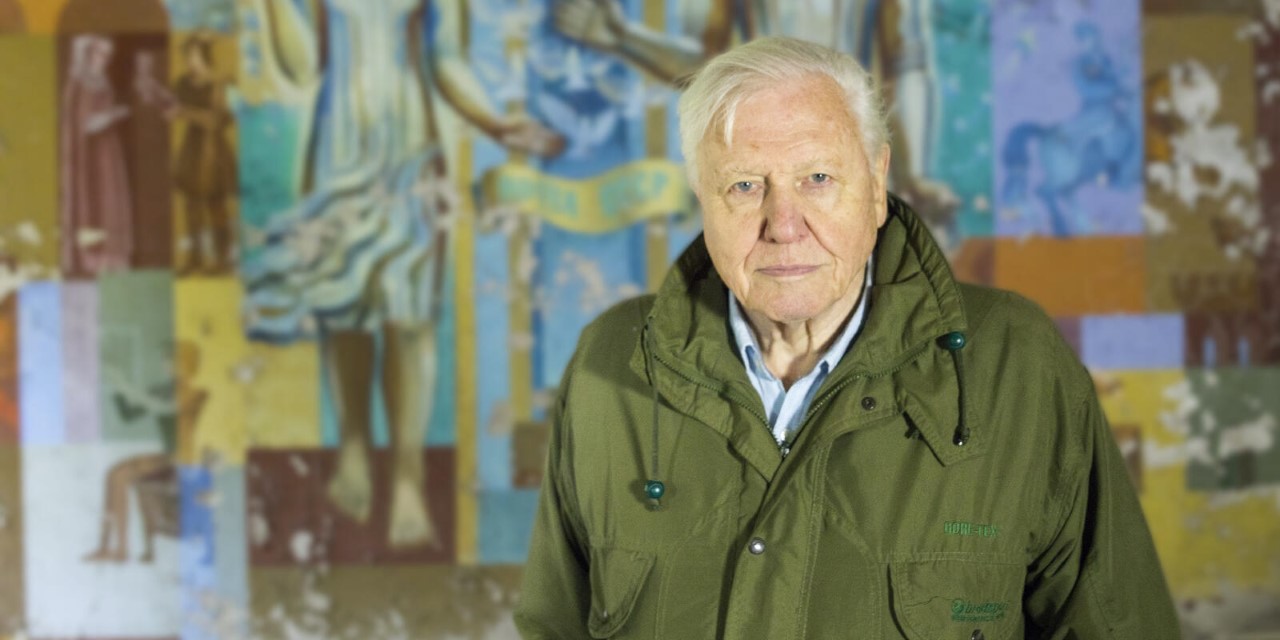ISABELLE OSBORNE reviews the documentary David Attenborough: A Life on Our Planet, which was recently released on Netflix.
David Attenborough has had an incredible career as both a broadcaster and a natural historian. His most recent documentary, A Life on Our Planet, tells ‘the story of global decline during a single lifetime’, looking back on his career and startling viewers with the reality of our climate emergency.
We begin in Chernobyl, the site of the devastating nuclear disaster in 1986. The release of radioactive material impacted both agricultural and natural ecosystems in Belarus, Russia, Ukraine, and many other European countries. Attenborough uses this event to frame his documentary around how human impact has devastated– and continues to devastate–the natural world.
Attenborough explores how the global process of destroying our natural world has severely accelerated in recent years, providing heartbreaking facts and statistics which foreground the rate at which this damage has been caused. Volcanoes take a million years to provoke enough carbon release to trigger a catastrophe, yet due to the burning of fossil fuels, this process has only taken 200 years. The ocean, a vast ecosystem, is struggling to absorb the excess heat caused by human activities. Since the 1950s, the animal population on earth has more than halved; 70% of the birds on the planet are kept as domestic animals. Humans account for over one third of mammals, with another 60% being those we raise to eat. The rest, from mice to wales, make up just 4%. Three trillion trees have been cut down, and half of all rainforests have been cleared.
The damage is accumulating in a way that will eventually make our system collapse. Attenborough states that ‘this is now our planet, run by humankind for humankind. There is little left for the rest of the living world.’

Attenborough has witnessed the natural world in all its beauty. In A Life on Our Planet, however, he urges us to recognise that ‘if we carry on on our course, the damage that has been the defining feature of [his] life time will be eclipsed by the damage coming in the next.’
In a startling episode towards the middle of the documentary, Attenborough offers a bleak prediction of what the next century will look like. From the rise of methane gas, which will accelerate the speed of climate change dramatically, to the reduction of ice in the arctic and an increase in global warming, our planet will struggle to cope with the effects of human activity. Coral reefs around the world will die as they become too acidic, after years of absorbing the extra heat caused by the burning of fossil fuels, leading to a severe reduction in fish population. Food production will be compromised, pollinating animals will become extinct, the weather will become more unpredictable, and large parts of the earth will become uninhabitable.
There is, however, for all the sense of despair, a note of optimism running throughout the second half of the documentary. Attenborough urges us to recognise that the destruction of our planet is a man-made problem, but it is a man-made problem that stands to be reversed. Attenborough bestows upon us nuggets of wisdom, discovered across a lifetime of exploring our planet, and urges us to take action before irreversible change occurs. ‘There is a chance for us to make amends’, he tells us. His advice? We need to rediscover how to live a sustainable life.
One way we can do this is to stabilise our population: ‘The trick is to increase the standard of living across the world, without increasing the impact on that world’. Attenborough suggests that overpopulation has a negative impact on humankind’s relationship with the natural world, so rather than simply expanding the population whilst simultaneously taking no consideration of the world around us, we need to ‘establish a life on our planet in balance with nature’. By ‘raising people out of poverty, giving all access to adequate health care, and enabling girls in particular to stay in school as long as possible, we can make the (population) peak…at a lower level.’
The documentary also looks into our diet, specifically our unsustainable meat and fish consumption. Changing our diet to a plant-based one would only use half of the land that we use now, and the yield of that land would increase.

To allow the ocean the chance to effectively reduce carbon in the atmosphere, we must increase its biodiversity. By slowing our fish consumption and ensuring that the marine habitat is healthy, we will revitalise our oceans and ensure our fish consumption can continue.
Attenborough draws attention to the absurdity of investing in fossil fuels when these are the very causes for damaging our planet. Natural energy sources, such as solar, geothermal and wind, will undoubtedly promote a more sustainable standard of living. And the switch to renewable energy is, without doubt, possible. The documentary uses the example of Morocco, which previously relied solely upon oil and gas imports for its energy, and now generates 40% of its energy using renewable sources. A country that previously relied heavily on energy imports could become an exporter of renewable energy by 2050. By focusing on renewable energy sources, our cities will be cleaner and quieter , and energy more affordable.
The message of the documentary is clear: we cannot function on a planet that we have destroyed. ‘In this world, a species can only survive if the world around it survives, too’, Attenborough says. ‘We can solve the problems we now face by embracing this reality.’
Our journey towards protecting our planet must be led by the recognition that we are not only saving our planet, but ‘saving ourselves.’ We must move ‘from being apart from nature, to becoming a part of nature once again’, and build a better, more sustainable future for our children, grandchildren, and beyond.
The documentary ends in Chernobyl, a place that has seen nature rebuild itself and is beginning to reclaim its natural beauty, harbouring a sanctuary for animals and forests over the last 30 years since the nuclear leak. Attenborough closes his ‘witness statement’ by reminding us that the natural world has the power to rebuild itself and overcome the mistakes humans have made, but whilst nature can endure, humans cannot.
‘If we take care of nature, nature will take care of us.’
(All figures, facts and stats are cited to the documentary, unless otherwise cited)
David Attenborough: A Life on Our Planet was released on Netflix on 4 October.
Trailer: https://www.youtube.com/watch?v=64R2MYUt394
Feature Image Source: WWF





